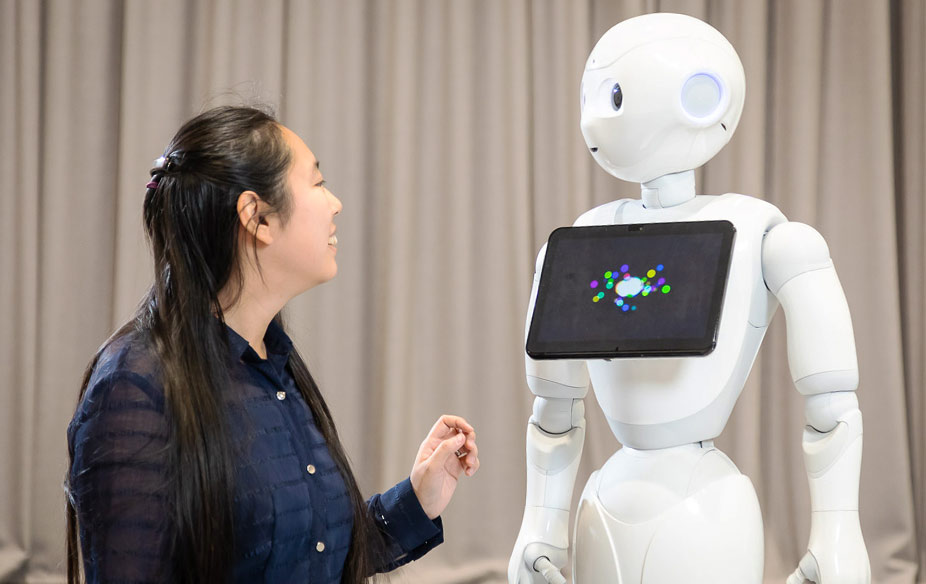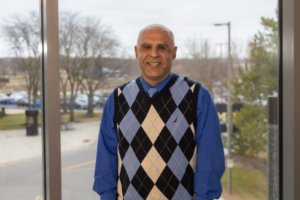Daba Coura Mbow

As a senior pursuing a degree in computer science, Allison Gaspard has been deeply engaged in the Undergraduate Research Opportunity Program at the University of Michigan Flint. She has been involved in a project led by Dr. Mark Allison for the past two years. The work focuses on computationally analyzing the intricate dynamics between facial expressions, vocal tones, and spoken language interpretation.

In the fall semester, Gaspard dug into the question of how the delivery of a message profoundly alters its meaning and emotional impact. Take a simple phrase like “it’s snowing outside” – its implications can drastically differ based on the intonation and accompanying facial expressions. Uttered joyfully, it conveys excitement; stated with frustration, it implies annoyance. Dr. Allison’s research team seeks to dissect these subtleties by orchestrating a focus group experiment. Participants articulate phrases using diverse tones and facial expressions, allowing the team to analyze how these variations affect perceived emotions, authenticity, and message clarity. Gaspard’s immersion in this field stemmed from a profound curiosity about infusing artificial intelligence (AI) with emotional understanding to enhance human-robot interactions. Recognizing the pivotal role emotions play in human communication, Gaspard is driven to integrate these dimensions into machines, envisaging a future where robots comprehend and engage with people more empathetically. At the heart of this research lies the aspiration to refine communication between humans and machines, especially in scenarios demanding swift and accurate comprehension. An upcoming focus group experiment represents an important test of the early findings and will help gather substantial empirical data.

Navigating through multidimensional research challenges has been an integral facet of Gaspard’s journey. Addressing cultural disparities in communication and combatting the spread of misinformation are recurring themes. She fervently believes in rectifying misleading information tactfully, without sowing conflict or causing offense. This research seeks to leverage technology, such as virtual agents or robots, to steer conversations toward empathy and constructive discourse. Gaspard’s curiosity about the research relates to how it can contribute to combating misinformation and mitigating its detrimental effects on society. She underscores the significance of collective involvement in this research, particularly in an era of misleading information on various online platforms.





